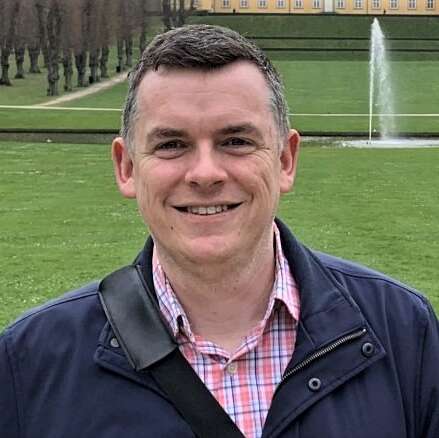Education
Historian Dr. Matthew Hayday Examines AI’s Impact on History

In an insightful conversation with the *Toronto Star*, Dr. Matthew Hayday, a professor in the Department of History, explored the evolving role of historians in an age increasingly influenced by artificial intelligence (AI) and the proliferation of fake materials. This discussion highlights the challenges and responsibilities facing historians as they navigate a landscape where digital misinformation is becoming more prevalent.
Dr. Hayday emphasized the critical need for historians to act as guardians of truth. In a world where AI can generate realistic but false content, the role of historians becomes vital in verifying the authenticity of historical narratives. He noted that AI technologies, while innovative, can complicate the interpretation of history by blurring the lines between fact and fiction.
AI’s Role in Historical Research
During the interview, Dr. Hayday pointed out that AI offers both opportunities and challenges for historical research. On one hand, AI can assist historians in analyzing large datasets, making it possible to identify trends and patterns that would be difficult to discern manually. For example, AI algorithms can sift through decades of archival material, significantly speeding up the research process.
On the other hand, Dr. Hayday cautioned that the reliance on AI-generated content poses risks. He highlighted concerns regarding the potential for AI to produce misleading information that could be mistaken for legitimate historical fact. This underscores the necessity for historians to maintain rigorous standards for source verification and analysis.
The professor also discussed the implications of fake materials on public understanding of history. With the rise of social media and digital platforms, misinformation can spread rapidly, impacting public perception and historical accuracy. Dr. Hayday believes that historians have an obligation to educate the public about the importance of critical thinking and source evaluation in the digital age.
Addressing Misinformation
Dr. Hayday’s insights are particularly relevant as society grapples with the effects of misinformation campaigns and the challenges posed by AI technologies. He advocates for a proactive approach, encouraging historians to engage with the public and provide context to complex historical events. By doing so, historians can help counter the spread of fake narratives that often accompany technological advancements.
The discussion with the *Toronto Star* reflects a broader conversation within the academic community about the responsibilities of historians. As technology continues to evolve, the need for historians to adapt their methodologies and outreach efforts becomes increasingly crucial.
In conclusion, Dr. Matthew Hayday’s dialogue on AI and fake materials serves as a reminder of the pivotal role historians play in safeguarding historical integrity. Their work is essential not only for academic purposes but also for fostering a well-informed public equipped to navigate an increasingly complex information landscape.
-

 Education3 months ago
Education3 months agoBrandon University’s Failed $5 Million Project Sparks Oversight Review
-

 Science4 months ago
Science4 months agoMicrosoft Confirms U.S. Law Overrules Canadian Data Sovereignty
-

 Lifestyle3 months ago
Lifestyle3 months agoWinnipeg Celebrates Culinary Creativity During Le Burger Week 2025
-

 Health4 months ago
Health4 months agoMontreal’s Groupe Marcelle Leads Canadian Cosmetic Industry Growth
-

 Science4 months ago
Science4 months agoTech Innovator Amandipp Singh Transforms Hiring for Disabled
-

 Technology4 months ago
Technology4 months agoDragon Ball: Sparking! Zero Launching on Switch and Switch 2 This November
-

 Education4 months ago
Education4 months agoRed River College Launches New Programs to Address Industry Needs
-

 Technology4 months ago
Technology4 months agoGoogle Pixel 10 Pro Fold Specs Unveiled Ahead of Launch
-

 Business3 months ago
Business3 months agoRocket Lab Reports Strong Q2 2025 Revenue Growth and Future Plans
-

 Technology2 months ago
Technology2 months agoDiscord Faces Serious Security Breach Affecting Millions
-

 Education4 months ago
Education4 months agoAlberta Teachers’ Strike: Potential Impacts on Students and Families
-

 Science4 months ago
Science4 months agoChina’s Wukong Spacesuit Sets New Standard for AI in Space
-

 Education3 months ago
Education3 months agoNew SĆIȺNEW̱ SṮEȽIṮḴEȽ Elementary Opens in Langford for 2025/2026 Year
-

 Technology4 months ago
Technology4 months agoWorld of Warcraft Players Buzz Over 19-Quest Bee Challenge
-

 Business4 months ago
Business4 months agoNew Estimates Reveal ChatGPT-5 Energy Use Could Soar
-

 Business4 months ago
Business4 months agoDawson City Residents Rally Around Buy Canadian Movement
-

 Business4 months ago
Business4 months agoBNA Brewing to Open New Bowling Alley in Downtown Penticton
-

 Technology2 months ago
Technology2 months agoHuawei MatePad 12X Redefines Tablet Experience for Professionals
-

 Technology4 months ago
Technology4 months agoFuture Entertainment Launches DDoD with Gameplay Trailer Showcase
-

 Technology4 months ago
Technology4 months agoGlobal Launch of Ragnarok M: Classic Set for September 3, 2025
-

 Technology4 months ago
Technology4 months agoInnovative 140W GaN Travel Adapter Combines Power and Convenience
-

 Top Stories3 months ago
Top Stories3 months agoBlue Jays Shift José Berríos to Bullpen Ahead of Playoffs
-

 Science4 months ago
Science4 months agoXi Labs Innovates with New AI Operating System Set for 2025 Launch
-

 Technology4 months ago
Technology4 months agoNew IDR01 Smart Ring Offers Advanced Sports Tracking for $169










